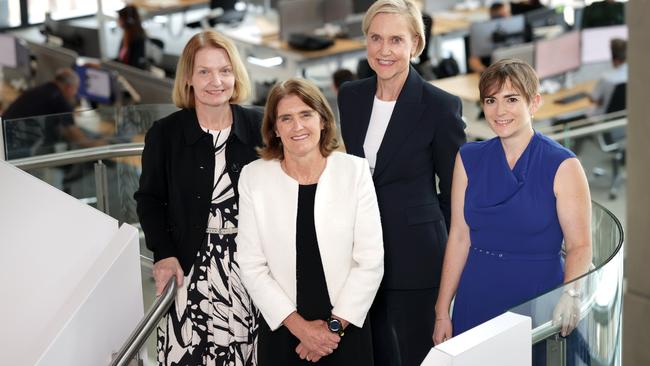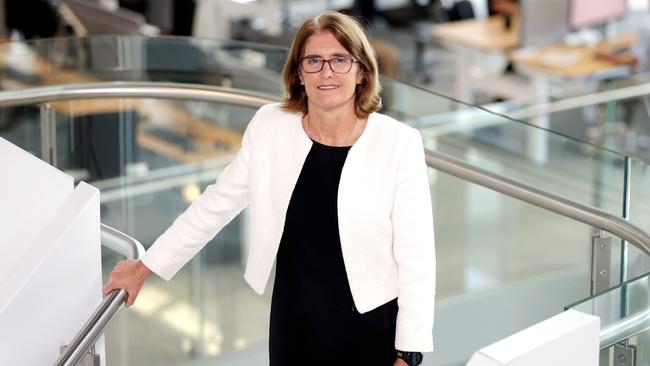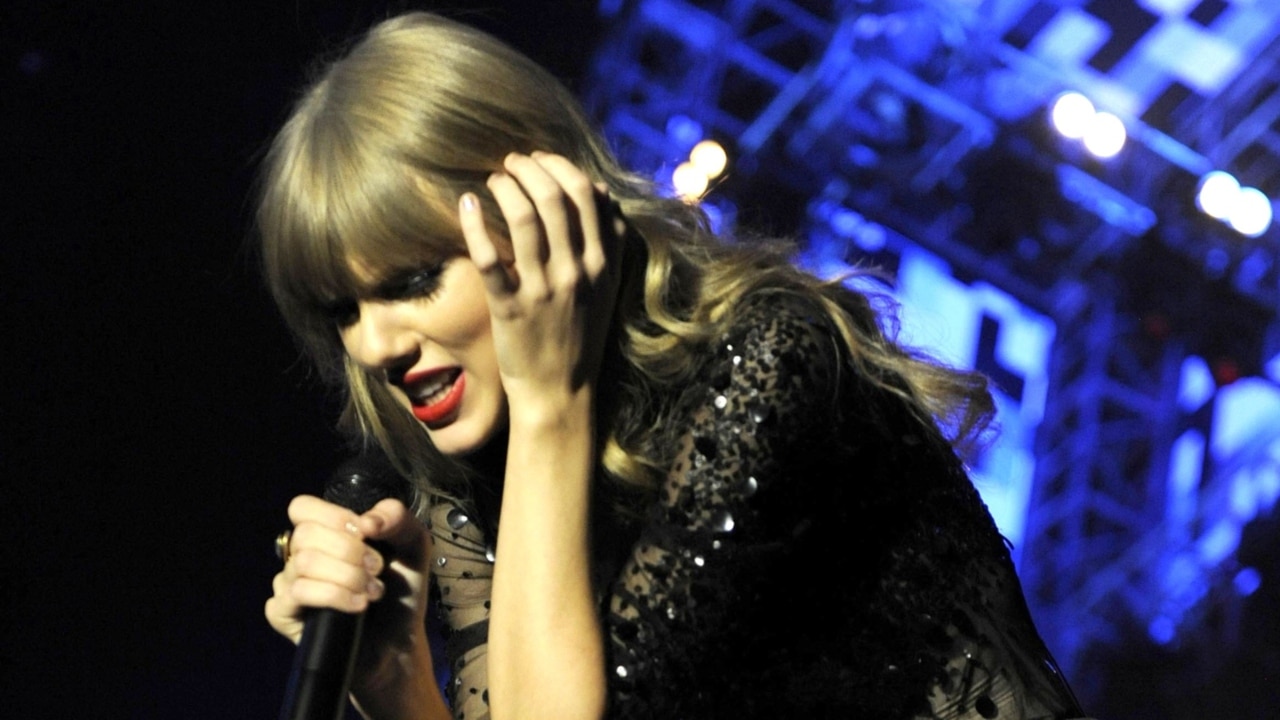RBA governor urges girls to study economics and says too few schools offer the option
When Michele Bullock joined the RBA, the other women worked in the typing pool. That’s changed, but unless more schools offer economics she fears future talent may dwindle.

Reserve Bank governor Michele Bullock wants more young women to study economics and has expressed her concern that not enough Australian schools are teaching the subject.
In an interview with The Australian ahead of International Women’s Day, Ms Bullock, who last September became the first woman governor of the Reserve Bank, said the central bank was finding its goal of encouraging women to study economics more difficult than expected.
“We are doing a lot of work trying to encourage women to study economics at high school and to go into economics at university as well, but it is a bit of a struggle,” she said.
“It seems that (there is more teaching of economics) in private schools than public schools. Public schools don’t teach economics as much as they used to.”
But she said the bank had still been able to “find a good amount of women” to fill its graduate programs.
Ms Bullock studied economics at the University of New England in Armidale and joined the RBA in 1985 and went on to break through a series of glass ceilings during her career.
She was appointed the first woman assistant governor in 2010 by former governor Glenn Stevens, the first woman deputy governor in 2022, and the first woman governor following the retirement of Philip Lowe last year.

In a separate interview with UN Women Australia to be aired at events on International Women’s Day on Friday, Ms Bullock also expressed her hope that Australia would move beyond the current “fraught” conversation over “gender politics” and that women would no longer have to worry about whether their gender might affect their career.
“I hope we get beyond this fraught conversation – which it seems still, quite frankly, about gender politics and the more diverse politics,” she said.
“I hope we can move beyond that, and that young women don’t have to think: ‘If I am a woman, will this impact me’?”
Today the Reserve Bank has a record number of women in its senior ranks.
Susan Woods took up the role of chief operating office on Monday, a newly created role which the RBA said would “sit alongside” the deputy governor. A former partner at accounting firm Deloitte in strategy and operations consulting, and head of IT for superannuation fund StatePlus, she joined the RBA in 2018 as assistant governor (corporate services) with responsibility for information technology, and its enterprise data office.
Former KPMG partner and Federal Treasury official Sarah Hunter was appointed chief economist and assistant governor (economics) in January this year.
She replaced Luci Ellis, the first woman to become assistant governor (economics) after she left last year to become chief economist at Westpac.

Michelle McPhee, who has worked at the bank since 1988, was appointed assistant governor (business services) in 2021 after being the head of its banking department for four years.
Ms Bullock said women now made up 39 per cent of the RBA’s senior leadership team.
She said Australia needed more women working in the economics profession.
“We need diversity, we need more women in economics,” she said. “I would encourage young women to think about a career in economics. It’s a really interesting field.
“There are lots of different ways to play economics, both in the public and private sector.”
Ms Bullock said the RBA had come a long way since she joined it in 1985 when most of the women working there were in the typing pool.
“When I first started, you would write out things and take it to the typing pool which was all women. They would do the typing and hand it back to you,” she said. “That was the environment that we were operating in.”
In the distant past, she said, women working at the RBA had to wear uniforms (unlike the men) and resign their jobs when they got married.
Ms Bullock was appointed as the first woman to hold the position of deputy governor, an appointment made by the Federal Treasurer Jim Chalmers after the surprise resignation of Guy Debelle who left to join Fortescue Future Industries in a job which only lasted a few months.
She was appointed governor by Mr Chalmers after the federal government decided to not extend Dr Lowe’s term.
Ms Bullock told UN Women Australia that as she approached September 18 last year, when she would take over as governor, she was worried that she might be nervous on her first day.
“I remember thinking I would be really nervous, but in fact I wasn’t,” she said.
“I was surprised that I felt comfortable. The reason I was, was that I knew I had great support around me in terms of the executive, in terms of all the positive messages I had from people who were supportive of me.
“I knew the board members were really supportive of me.
“So even though I thought I’d feel quite nervous about the whole thing, I actually felt quite calm.
Despite holding various roles at the RBA in a first for women she said she never felt any problems.
“I have always felt my male colleagues were very supportive. I never had any trouble talking to them or relating to them,” she said.
But she said she was aware this had not been the case for other women outside the bank.
Ms Bullock said it was important that the bank’s staff was reflective of the broader Australian society in terms of its representation of women as well as people of different backgrounds.
She said its current level of 39 per cent of women in leadership roles was a “big improvement, but it is still not where we need to be”.
Ms Bullock said while she never expected to become governor, it had “never occurred” to her as young staffer there that she might not be able to progress through the ranks because she was a woman.
But she observed this was not always the case for women at other organisations.
“As I rose up through the ranks, I found I was hearing more about this, so I felt I had to be a bit more out there and say (to other women) ‘Yes, you can do it’,” she said.
Ms Bullock said there were positive signs that more women were moving into the top ranks of business and public service.
She said “lifting the visibility on the achievements of women does help to lift up everyone”.
But more needed to be done.
“In the past some women didn’t used to run businesses, but now they do,” she said.
“I think that we’re going to get there (but) it’s just a reasonably slow process.”






To join the conversation, please log in. Don't have an account? Register
Join the conversation, you are commenting as Logout